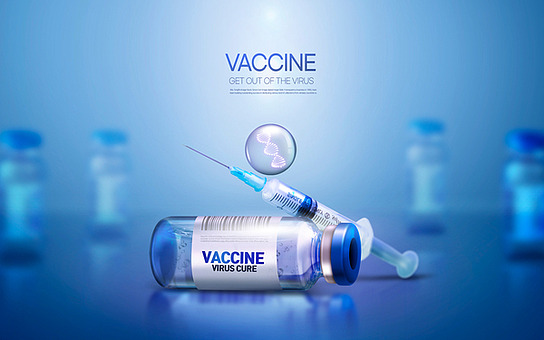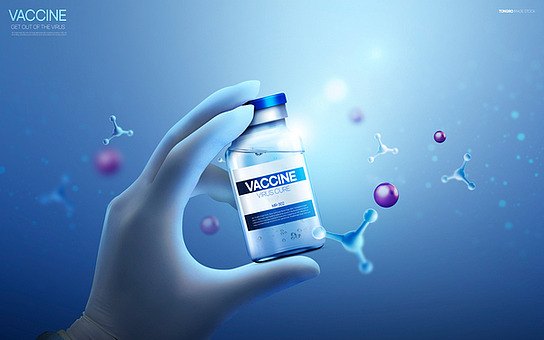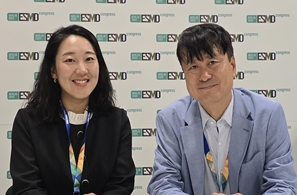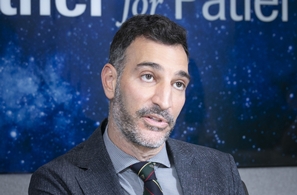- COVID-19 vaccine almost there, how about cost-effectiveness?
- by Choi,sun | translator Byun Kyung A | Dec 7, 2020 06:05am

▲The COVID-19 vaccine candidates currently in Phase III trial
Total 11 candidate vaccines have initiate their Phase III clinical trials globally, categorized in three major types of mRNA, virus vector and inactivated vaccine.
BNT162, in development by Pfizer and BioNTech, and mRNA-1273 by Moderna are mRNA vaccines. Instead of an attenuated vaccine that reduces virulence for the injection, mRNA vaccine uses mRNA strand from a virus to manufacture the vaccines fast.
On the contrary, AstraZeneca, Janssen, Gamaleya (Russia) and CanSino Biologics (China) are developing viral vector vaccines. The type of vaccine injects viral vector to transport the viral gene. AstraZeneca’s candidate vaccine uses chimpanzee adenovirus-based vector to combine the spike-like protrusions on COVID-19 virus.

▲Clinical results for each vaccine disclosed but AstraZeneca leaves questionable findings
On Nov. 23, AstraZeneca presented the results of Phase II/III on its developing vaccine AZD1222. The clinical protocol was to confirm the COVID-19 prevention effect shown two weeks after two doses of vaccine administered in one-month interval on 10,000 volunteer subjects aged 18 and over.
The trial found the vaccine was 90 percent effective in 2,741 subjects who were administered with a half-dose, whereas it was 62 percent effective in 8,895 subjects who had a full-dose. Total 131 subjects were reportedly infected with the virus.
AstraZeneca claimed the vaccine is average 70 percent effective by combining the two trial findings from 11,636 volunteers. Apparently, the company had no reports of severe adverse reaction.
The medical experts are clashing over the AstraZeneca’s vaccine; they are conflicted over the facts that the half-dose was more effective and the company insisting on the average efficacy deducted from using two different doses. Also the experts are suspecting the use of half-dose could have been an unintentional error in the trial.
An insider from the Korean Society of Infectious Diseases (KSID) commented, “It is odd to calculate average by adding the results from two different dose groups, but also we are questioning the credibility in the efficacy data extracted from only 2,741 people. FDA requires data analysis from at least 30,000 people.”
Regarding the skepticism, Dr. Kim Woo-joo at Korea University Guro Hospital Department of Infectious Disease said, “A half-dose vaccination showing higher efficacy is an exceptional result. A lot of news media is reporting it as an error, but a clinical trial cannot possibly have such error.”
▲mRNA vaccine competition, Moderna 94.5% vs. Pfizer 95%
An interim analysis of Moderna’s COVID-19 vaccine Phase III COVE study was announced on Nov. 16. The protocol targeted 30,000 people administering two doses in four-week interval to confirm the COVID-19 infection after two weeks.
In the first interim analysis, total 95 people were infected, including 90 people receiving placebo and five people receiving the mRNA vaccine. The vaccine was 94.5 percent effective. The reports on the adverse reactions were of mild cases, such as pain around the injected area and fatigue.
The second endpoint was the number of COVID-19-infected people after using the vaccine. The placebo group had a total of 11 severe cases, but none of the mRNA vaccine group reported a severe case. Based on the findings, Moderna claims their vaccine is 100-percent effective against severe case of COVID-19.
Pfizer administered two doses of their vaccines on 43,661 people in 21-day interval. Total 10 cases were confirmed with the virus, where nine were from the placebo group and one was from the vaccine group. Analyzing the result, the company states the vaccine is 95-percent effective. The vaccine had no reports of adverse reaction so far.
Dr. Kim Woo-joo mentioned, “In regards to the efficacy, Moderna and Pfizer’s vaccine demonstrating 94.5 percent and 95 percent efficacy is outstanding. Now the problem is distribution of these vaccines.”
▲Taking account of cost-effectiveness, which could be accessible from South Korea?
The experts say all three vaccines are over 90-percent effective, if they were to directly quote AstraZeneca with their 90-percent effective vaccine trial result.
However, the three vaccines have widely contrasting distribution methods and pricing.
First, Pfizer’s vaccine requires to be stored at minus 70 degrees Celsius. The vaccine is priced at USD 19.50 (approximately 21,600 won) per dose (requires two-dose administration). And as the vaccine distribution would need a cold chain to maintain the minus 70 degrees Celsius, the actual administration cost would be much higher.
Considering South Korean flu vaccine distribution struggled to maintain 2 to 8 degrees Celsius, distributing Pfizer’s vaccine soon may be out of question.
The Ministry of Food and Drug Safety (MFDS) official commented, “Pfizer’s COVID-19 vaccine requires an ultra-cold chain to deliver them at minus 70 degrees Celsius. It is questionable a company in South Korea would be able to handle mass distribution of Pfizer vaccine in such challenging environment.”
Moderna vaccine, on the other hand, has to be stored at minus 20 degrees Celsius. As normal refrigerated distribution is kept at around minus 20 degrees Celsius, the vaccine distribution would be more manageable by private companies. But the issue is its pricing. Moderna says it would be priced at 32 to 37 dollars, or approximately 35,500 won to 41,000 won. For the two-dose administration, it would cost more or less 80,000 won.
Meanwhile, AstraZeneca’s vaccine can be distributed at around 2 to 8 degrees Celsius and is priced at around 4 dollars per dose (approximately 4,400 won). The experts argue the vaccine would be most preferred with the cost of about 10,000 won for two-dose administration.
Regardless of the emergency approval given to the vaccine in other countries, the company would be able to start the distribution in the first quarter next year at earliest as it would need to wait for the MFDS approval, vaccine procurement contracting and manufacturing.
MFDS official added, “We would have to wait and see first if the actual vaccination result would match its clinical finding, as it started its emergency use approval application procedure in other countries. If AstraZeneca can prove the low-dose vaccine efficacy through additional clinical trials, their vaccine would be most adequate to be used in South Korea.”
-

- 0
댓글 운영방식은
댓글은 실명게재와 익명게재 방식이 있으며, 실명은 이름과 아이디가 노출됩니다. 익명은 필명으로 등록 가능하며, 대댓글은 익명으로 등록 가능합니다.
댓글 노출방식은
댓글 명예자문위원(팜-코니언-필기모양 아이콘)으로 위촉된 데일리팜 회원의 댓글은 ‘게시판형 보기’와 ’펼쳐보기형’ 리스트에서 항상 최상단에 노출됩니다. 새로운 댓글을 올리는 일반회원은 ‘게시판형’과 ‘펼쳐보기형’ 모두 팜코니언 회원이 쓴 댓글의 하단에 실시간 노출됩니다.
댓글의 삭제 기준은
다음의 경우 사전 통보없이 삭제하고 아이디 이용정지 또는 영구 가입제한이 될 수도 있습니다.
-
저작권·인격권 등 타인의 권리를 침해하는 경우
상용 프로그램의 등록과 게재, 배포를 안내하는 게시물
타인 또는 제3자의 저작권 및 기타 권리를 침해한 내용을 담은 게시물
-
근거 없는 비방·명예를 훼손하는 게시물
특정 이용자 및 개인에 대한 인신 공격적인 내용의 글 및 직접적인 욕설이 사용된 경우
특정 지역 및 종교간의 감정대립을 조장하는 내용
사실 확인이 안된 소문을 유포 시키는 경우
욕설과 비어, 속어를 담은 내용
정당법 및 공직선거법, 관계 법령에 저촉되는 경우(선관위 요청 시 즉시 삭제)
특정 지역이나 단체를 비하하는 경우
특정인의 명예를 훼손하여 해당인이 삭제를 요청하는 경우
특정인의 개인정보(주민등록번호, 전화, 상세주소 등)를 무단으로 게시하는 경우
타인의 ID 혹은 닉네임을 도용하는 경우
-
게시판 특성상 제한되는 내용
서비스 주제와 맞지 않는 내용의 글을 게재한 경우
동일 내용의 연속 게재 및 여러 기사에 중복 게재한 경우
부분적으로 변경하여 반복 게재하는 경우도 포함
제목과 관련 없는 내용의 게시물, 제목과 본문이 무관한 경우
돈벌기 및 직·간접 상업적 목적의 내용이 포함된 게시물
게시물 읽기 유도 등을 위해 내용과 무관한 제목을 사용한 경우
-
수사기관 등의 공식적인 요청이 있는 경우
-
기타사항
각 서비스의 필요성에 따라 미리 공지한 경우
기타 법률에 저촉되는 정보 게재를 목적으로 할 경우
기타 원만한 운영을 위해 운영자가 필요하다고 판단되는 내용
-
사실 관계 확인 후 삭제
저작권자로부터 허락받지 않은 내용을 무단 게재, 복제, 배포하는 경우
타인의 초상권을 침해하거나 개인정보를 유출하는 경우
당사에 제공한 이용자의 정보가 허위인 경우 (타인의 ID, 비밀번호 도용 등)
※이상의 내용중 일부 사항에 적용될 경우 이용약관 및 관련 법률에 의해 제재를 받으실 수도 있으며, 민·형사상 처벌을 받을 수도 있습니다.
※위에 명시되지 않은 내용이더라도 불법적인 내용으로 판단되거나 데일리팜 서비스에 바람직하지 않다고 판단되는 경우는 선 조치 이후 본 관리 기준을 수정 공시하겠습니다.
※기타 문의 사항은 데일리팜 운영자에게 연락주십시오. 메일 주소는 dailypharm@dailypharm.com입니다.
- [Reporter's View] Transparent info, the key to vaccine trust
- Reporter's view | Son, Hyung Min









